This is the third post in a series I’ve been writing on What My Beta Readers Have Taught Me—now abbreviated to Beta Lessons. Links to the first two posts in the series are at the bottom of this post.
During my research into fiction writing, I routinely encountered the advice that writers should get feedback from other people on their work before sending it to an agent or self-publishing it. A common way to get that feedback is to find critique partners to evaluate your work, often in trade for you evaluating theirs.
I live in the middle of nowhere, so working with a local group was not practical. I also had little luck finding critique partners online. Instead, I announced to my friends and family that I had finished the first draft of a fiction book and I was looking for volunteers to beta read or do a critique. I got five volunteers!
Even though I trusted the readers, I had some apprehension about turning my brainchild over to them for critique. Could I handle negative feedback? I didn’t want to be defensive about my work, but emotions are not always logical or suppressible.
When the feedback started to come in, I discovered with some relief that I welcomed it and appreciated it. But I also started learning some things about critique:
- Not everyone has the same opinion: what one person loves, another may hate.
- When it comes to evaluating the entertainment value of a scene, an educated opinion is not necessarily better than an uneducated one.
- The writer’s opinion is the one that matters most.
I believe that the last one is the key to working with critique partners.
I’ve been very careful about how I accept and evaluate the critique I’ve received. For one thing, I believe you must agree with the reviewer. Sometimes critique partners miss the point or make incorrect assumptions. Their observations may still point to an issue that should be corrected, but any suggestions they make for fixing it are rarely appropriate.
In general, I don’t accept the suggestions of critique partners as they stand. The only time I do is when their suggestions fit well within my vision for the story and my deeper understanding of the plot and characters. The story they read is only the tip of the proverbial iceberg, so all of their suggestions must be considered within the context of the big picture. This is particularly true in my case, where the book is the first in a series.
My advice would be to take it seriously when your critique partners point out a problem, but remember that it is your problem to solve. If they make a suggestion that fits well with your vision for the story and your understanding of the plot and characters, then you have a winner. Otherwise, look closely at the problem area and devise your own solution.
“People ask you for criticism, but they only want praise.”
~ Somerset Maugham
In my first Beta Lessons post, I made the point that you need to brace yourself when you hand your work over to others for critique. If the goal of the critique is to help you improve your work, your reviewer must point out areas that can be improved. Don’t think of those suggestions as negative feedback, think of them as opportunities. If your only goal is to receive praise for your work, you are wasting everyone’s time.
On the other hand, I’ve also heard horror stories about authors who reworked their novel using feedback from a critique group, only to find they had created a novel that didn’t work or that they didn’t like anymore.
Don’t let that happen to you. Remember that the suggestions you get are only indicators of a problem, not necessarily good solutions. Retain control of your own work, and solve problems in a way that makes sense in the context of your story.
***
Have you worked with critique partners? Was the experience wonderful or dreadful? Maybe something in between? Tell me in the comments!


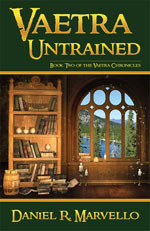

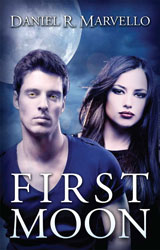
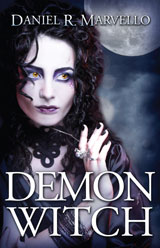
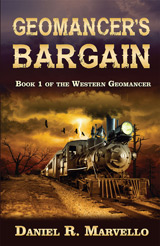
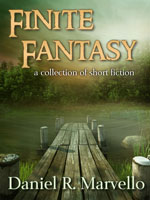


I just started working with cps this year. Before that, contests were a source of feedback for me.
You make lots of valid points. I’ve had horrible experiences and wonderful experiences with both cps and contests. The best ones were a mix of this is what could be improved/done better and this is what I enjoyed. Both can tell a writer a lot about their work.
Isis: I agree that the best critique partners tell you what they loved as well as what they thought needed work. Knowing what works helps put all other comments (from that reviewer and the other reviewers) into perspective. For one thing, it’s nice to know when one person things something works and another thinks it doesn’t. I had that happen on more than one occasion.
I never thought about contests as a possible source of critique, but I could see how they could be. I didn’t see any of that in the first campaign challenge. All the comments I saw took something positive about the flash fiction piece and emphasized it in support of the writer. I got one person who questioned my using the word "paper" instead of "parchment" because of the presumed time period, but that’s the closest thing I saw to a critique.
My piece "The Rune" didn’t make it through the first round of judging, and none of the judges weighed in with any feedback on why it was deficient. I’m sure they were just trying to be nice, but not having that feedback diminished the usefulness of participating in the challenge, IMHO.
I’ve had mostly positive experiences with critiques. I think the first of your three points can get really frustrating – what one person praises as the story’s highest merit another will condemn as its worst fault. I guess that’s where point #3 comes in! It took me a while to learn that I didn’t HAVE to implement the changes suggested, or in exactly the way the person handed them to me. It was a really valuable lesson to learn – that it’s still MY story and it’s my choice how to go about revising it.
Thanks for visiting, Crystal. Sounds like you have it figured out!
One of the things I don’t like about going through a traditional publisher is that the editors’ critique is virtually a mandate. To be fair, their suggestions usually make your story stronger, but those changes may come at the cost of your original vision.
Authors have been known to back out of a deal because of the changes demanded by their agent, editor, or publisher. That would just have to be a heartbreaking turn of events after thinking you had a deal.
I find that the best readers are going to be the ones that stumble across your work naturally and just read it for what it’s worth. When you obligate someone either out of looking for feedback or through friendship or whatever, then the obligation suddenly becomes a time sink.
That being said, when a person looks at something that is a time sink…they get "testy". "You need to grab me right off the bat"…show don’t tell…and all the crap that is repeated in every writing class and on writer blogs etc. comes pouring out. These people are no longer readers. They are writers who think they are readers but really…what they are doing is nitpicking.
Finding a genuine reader to test your books is damn near impossible and has nothing to do with being in the middle of nowhere. I live in a big city and can’t find one. So yeah…that is the catch-22. But for the record…Agents aren’t readers either. They are "obligated" and thus very testy with what they will tolerate. They have no clue what an actual good book looks like because they’ve been reading professionally for years.
Yikes! Looks like I touched a nerve with you, Michael. Thanks for being willing to share your viewpoint on the matter.
I know what you mean about obligations and time sinks. That’s why I asked for volunteers, and was happy to get whatever feedback their schedule allowed them to provide. That’s also a reason why I’ve been reluctant to join a critique group (assuming I could find one): I’m not sure what the politics are of that situation, and I wouldn’t want to screw it up.
However, I feel very strongly about wanting to get feedback from other people on my first novel, and I’m very glad I did. I plan to self publish, but I want the book to be as good as I can afford to make it. The truth is that EVERYONE needs an editor. No writer can competently edit his/her own work.
As for agents having no clue what a good book looks like, I respectfully disagree. I believe most agents are quite skilled at identifying good work. However, they know that writing a good book is not near enough in today’s market. The book has to also have the potential to be very popular, or the publisher’s marketing department will shoot it down (no matter how good it is). Sometimes, reality sucks.
This is a GREAT post for people beginning to work with critters. I usually read through all the comments and then set everything aside for a few days. Any comments that stick with me over those few days are what I work on when I revise. If the comment didn’t resonate enough with me to remember it then it probably isn’t anything I need to worry about.
Thanks for your comments Rebecca. I like your approach for identifying the most salient comments from critters. I wouldn’t trust my memory enough to do the same, but I have found that some comments are more compelling than others, and those are the ones I like to tackle first.